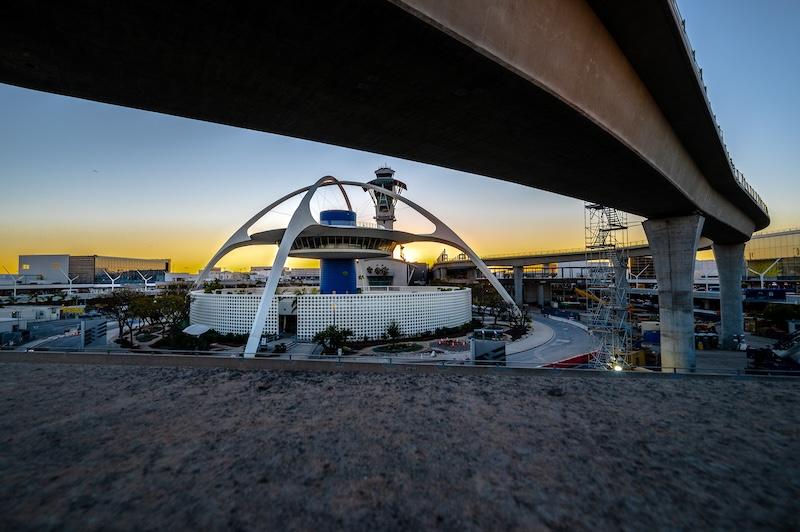
The latest news on airports globally, with updates on financing, infrastructure expansion and sustainability initiatives.
Los Angeles International Airport (LAX) has received a Level 4 accreditation in the Airports Council International (ACI) Airport Carbon Accreditation (ACA) program, the second-highest level awarded by ACI. “Level 4 recognizes an airport for measuring carbon emissions from both an airport authority and third parties operating on site, and for demonstrating emissions reduction progress,” said Los Angeles World Airports (LAWA), which runs LAX. LAX achieved Level 3 accreditation in 2017. “In 2023, a 26% reduction of [non-aeronautical] energy consumption per passenger at LAX from 2011 levels was achieved, two years ahead of LAWA's 2025 goal,” LAWA noted. Airports in the ACI APA program can ultimately achieve as high as a Level 5 accreditation, which means the airport has “reached net zero for emissions under their control and committed to full decarbonization across all scopes by 2050,” according to ACI.
Casablanca Mohammed V International Airport plans to build a new $1.5 billion passenger terminal. The facility—described by the National Airports Office of Morocco as a “hub-style terminal” aimed at facilitating connectivity—will have capacity to handle 20 million passengers annually. The project is targeted for a 2029 completion.
Hong Kong International Airport (HKG) was the busiest cargo airport in the world in 2024, according to Airports Council International World (ACI). HKG handled 4.9 million metric tons of cargo in 2024, up 14.1% year-over-year. ACI noted that combined volumes at the top 10 busiest cargo airports in the world in 2024—representing nearly 26% of global volumes—rose 9.3% year-over-year to 32.3 million metric tons. “The increase in cargo is attributed mainly to strong e-commerce demand, maritime shipping disruptions and declines in jet fuel price,” ACI said. Shanghai Pudong International Airport (3.8 million metric tons, up 9.8% over 2023) and FedEx base hub Memphis International Airport (3.7 million metric tons, down 3.3%) were the second- and third-busiest cargo airports in the world, respectively, in 2024, according to ACI. Four through 10 on the ACI busiest cargo airports list for 2024 were: Anchorage, UPS Airlines base hub Louisville, Seoul Incheon, Miami, Doha, Guangzhou and Taipei. Hartsfield-Jackson Atlanta International Airport remained the busiest passenger airport in the world in 2024.
New Delhi’s Indira Gandhi International Airport (DEL) will roll out trials of four full body scanners at security checkpoints in May. “These advanced scanners detect both metallic and non-metallic threats, including explosives, significantly improving upon traditional metal detectors,” DEL said. “The technology … enables rapid screening, with each scan taking just three seconds and a maximum throughput of 1,200 scans per hour, dramatically improving efficiency while minimizing passenger inconvenience.” The scanners generate a 2D image on a preset human avatar and images are not stored, DEL noted. The machines have already been installed—two in DELs Terminal 1 and two in Terminal 3. DEL said the trial of the four scanners will last 3-4 months, after which a committee will evaluate the findings and determine whether and how a full-scale implementation could be put in place. The airport noted similar scanners are being used at some major airports around the world, including in Australia and the U.S. DEL CEO Videh Kumar Jaipuriar said the machines are “a game-changer in security screening, allowing for faster and more effective checks without compromising privacy.”
Airports Council International-Latin America-Caribbean (ACI-LAC) said six airports operated by Aena Brasil in northeastern Brazil have received Level 1 certification under the ACI Airport Carbon Accreditation (ACA) program. “This level is granted to airports that have mapped their carbon footprint, identified emission sources and calculated their annual emissions,” according to ACI-LAC. The newly certified airports serve Brazilian cities Aracaju, Campina Grande, João Pessoa, Juazeiro do Norte Recife, Maceió and Recife. “The certification is the result of a process that includes inventories of direct emissions from airport operations, such as those generated by vehicles and equipment owned by the airports,” ACI-LAC explained. Aena Brasil plans to take steps to ensure “100% of the electricity used at terminals comes from renewable sources” and to replace vehicle fleets with cleaner-energy options. The airport operator’s plan “also covers waste management [and] emissions offsetting, [as well as] promotion of sustainable aviation fuel.” Aena plans to work towards achieving a Level 2 accreditation.





